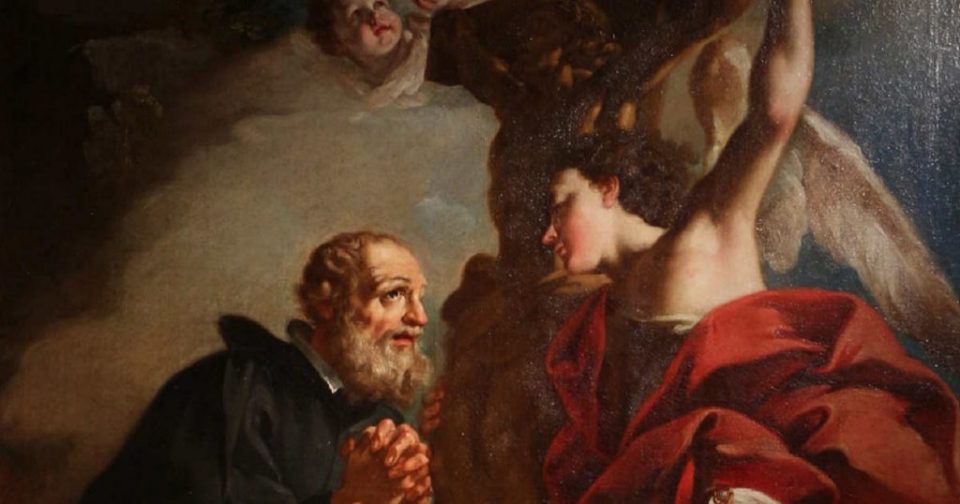Life of Saints: San Girolamo Emiliani

San Girolamo Emiliani, priest
1481 – 1537 Feet
8 February -
Optional commemorative liturgical color: White (purple if the day of the Lenten week)
Patron of orphans and abandoned children
He was forever grateful after surviving an encounter with death
In the year 1202, a young wealthy Italian man joined the cavalry of the militia in his city. Inexperienced soldiers went into battle against the greatest force of a nearby city and were canceled. Most of the retreating soldiers were run over by spears and left dead in the mud. But at least one was spared. He was an aristocrat who wore elegant clothes and new and expensive armor. It was worth taking hostage for the ransom. The prisoner suffered in a dark and miserable prison for a whole year before his father made the payment for his release. A changed man has returned to his hometown. That city was Assisi. That man was Francesco.
The saint of today, Jerome Emiliani, endured more or less the same thing. He was a soldier in the city of Venice and was appointed commander of a fortress. In a battle against a league of city states, the fortress fell and Jerome was imprisoned. A heavy chain was wrapped around the neck, hands and feet and fastened to a huge piece of marble in an underground prison. He was forgotten, alone and treated like an animal in the darkness of a prison. This was the cornerstone. He repented of his life without God. He prayed. He dedicated himself to Our Lady. And then, somehow, he escaped, chained the chains and fled to a nearby town. He walked through the doors of the local church and headed forward to fulfill a new vow. He slowly approached a highly revered Virgin and placed his chains on the altar in front of her. He knelt, bowed his head and prayed.
Some pivot points can turn a life's straight line into a right angle. Other lives change slowly, bending like an arch over a long span of years. The privations suffered by San Francesco d'Assisi and San Girolamo Emiliani occurred suddenly. These men were comfortable, had money and were supported by family and friends. So, surprisingly, they were naked, alone and chained. St. Jerome could have despaired in his captivity. Many people do it. He could have rejected God, understood his sufferings as a sign of God's disfavor, become bitter and renounced. Instead, he persevered. His imprisonment was a purification. He gave his suffering purpose. Once free, he was like a man born again, thankful that the heavy prison chains no longer weighed his body down on the floor.
Once he started running away from that prison fortress, it was as if San Girolamo had never stopped running. He studied, was ordained a priest and traveled throughout Northern Italy, founding orphanages, hospitals and homes for abandoned children, fallen and marginalized women of all kinds. Exercising his priestly ministry in a Europe recently divided by Protestant heresies, Jerome perhaps wrote the first catechism of questions and answers in order to inculcate Catholic doctrine in his accusations. Like so many saints, he seemed to be everywhere at the same time, taking care of everyone except himself. While taking care of the sick, he became infected and died in 1537, martyr of generosity. He was, of course, the type of man who attracted followers. Eventually they formed into a religious congregation and received ecclesiastical approval in 1540.
His life depended on a pin. It is a lesson. Emotional, physical or psychological suffering, when conquered or controlled, can be a prelude to intense gratitude and generosity. Nobody walks the road freer than a former hostage. Nobody likes a warm and comfortable bed like someone who once slept on the asphalt. Nobody swallows a breath of fresh morning air like someone who has just heard from the doctor that the cancer has disappeared. St. Jerome never lost the wonder and gratitude that filled his heart when he was released. It was all new. He was all young. The world was his. And he would put all his power and energy into the service of God because he was a survivor.
San Girolamo Emiliani, you have passed the birth to live a fruitful life dedicated to God and man. It helps all those who are confined in some way - physically, financially, emotionally, spiritually or psychologically - to overcome whatever binds them and to live a life without bitterness.